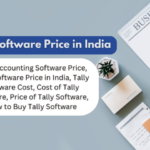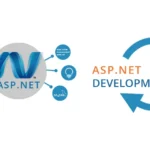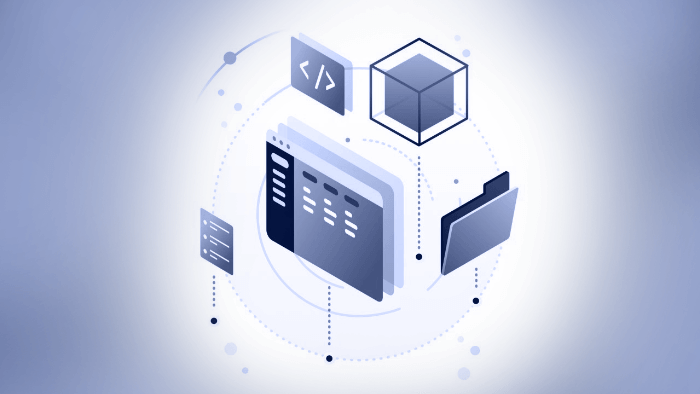In today’s rapidly evolving digital landscape, businesses are increasingly relying on robust technology systems to streamline their operations and enhance their competitive edge. Among the most critical tools in this digital transformation are Customer Relationship Management (CRM), Enterprise Resource Planning (ERP), and Content Management Systems (CMS). These enterprise systems have been around for decades, but as businesses face new challenges and opportunities, the future of CRM, ERP, and CMS is being shaped by emerging trends in technology.
Artificial Intelligence and Machine Learning Integration
The integration of Artificial Intelligence (AI) and Machine Learning (ML) is one of the most significant trends shaping the future of enterprise technology. These technologies allow for better decision-making and more personalized customer experiences. In CRM system, AI is already being used to predict customer behavior, recommend products or services, and even automate sales processes. As AI technology matures, we can expect CRM systems to become even more predictive, helping businesses to anticipate customer needs and offer highly personalized services.
In ERP systems, AI and ML can improve supply chain management by predicting demand fluctuations, optimizing inventory levels, and reducing operational costs. In CMS, AI can be used to automate content creation, enhance search capabilities, and deliver more personalized content to users based on their preferences and behaviors.
AI and ML-driven insights across CRM, ERP, and CMS will lead to more efficient operations, improved customer engagement, and greater competitive advantage.
Cloud-Based Solutions
As businesses continue to embrace remote work and distributed teams, the demand for cloud-based enterprise solutions has skyrocketed. Cloud-based CRM, ERP, and CMS systems offer several advantages, including scalability, flexibility, and cost-efficiency. The ability to access enterprise systems from anywhere at any time provides businesses with greater agility, especially in times of crisis or unexpected.
As more businesses transition to cloud-based enterprise systems, the focus will shift to ensuring data security, privacy, and compliance, particularly in highly regulated industries.
Data-Driven Decision Making
The explosion of data in recent years has made data-driven decision-making a key trend in enterprise technology. CRMs, ERPs, and CMSs are becoming increasingly data-centric, providing businesses with real-time insights into customer behavior, operational efficiency, and market trends.
For example, CRM systems can leverage customer data to generate insights into buying patterns, customer preferences, and potential opportunities for cross-selling or upselling. ERPs, on the other hand, can provide insights into production processes, inventory management, and financial performance. CMS platforms can offer data on user engagement, content effectiveness, and SEO performance.
Omnichannel Experiences
Customers today expect a seamless experience across multiple channels, from websites to mobile apps to in-person interactions. The future of CRM systems will be centered around omnichannel customer experiences, where businesses can track and engage customers across a wide range of touchpoints.
An omnichannel CRM provides a unified view of the customer journey, allowing businesses to provide personalized, context-aware interactions regardless of the platform or channel. For example, a customer’s browsing history on a website can be linked to their in-store purchase behavior, allowing the business to offer tailored recommendations or discounts.
For ERP systems, omnichannel capabilities mean better coordination between different departments, such as sales, finance, and operations, ensuring that businesses can respond to customer needs in real time.
Hyper-Personalization
As customer expectations continue to rise, the need for hyper-personalization is becoming a critical trend. Customers now expect businesses to understand their unique preferences and deliver personalized experiences tailored specifically to them. CRMs play a key role in achieving hyper-personalization by collecting and analyzing customer data to deliver targeted marketing campaigns, personalized recommendations, and customized support experiences.
In the future, CRM systems will leverage AI and ML to offer even more personalized customer interactions. For instance, chatbots powered by AI will be able to provide personalized responses based on past customer interactions and behaviors.
CMS systems will also evolve to deliver personalized content based on a user’s location, preferences, and behavior. This could include dynamically changing the layout, offers, or messaging on a website based on a user’s browsing history or geographic location.
ERP systems, while traditionally more focused on internal operations, will also benefit from hyper-personalization by delivering personalized reports, dashboards, and process workflows tailored to specific roles within the organization.
Automation and Workflow Optimization
The rise of automation is another key trend shaping the future of enterprise technology. CRM, ERP, and CMS systems are increasingly incorporating automation to streamline repetitive tasks and improve operational efficiency. In CRM, this could mean automating follow-up emails, lead scoring, or customer service inquiries.
In ERP systems, automation can be used to optimize supply chain management, financial reporting, and inventory tracking. This not only reduces human error but also allows employees to focus on higher-value tasks that require critical thinking.
Conclusion
The future of CRM, ERP, and CMS is being driven by rapid advancements in AI, cloud computing, data analytics, and automation. Businesses that embrace these trends will be better equipped to adapt to the evolving digital landscape, providing more personalized customer experiences, optimizing internal processes, and driving greater innovation. The next few years will see enterprise systems becoming more intelligent, more connected, and more user-centric, transforming the way businesses operate and compete in the global market.

















































